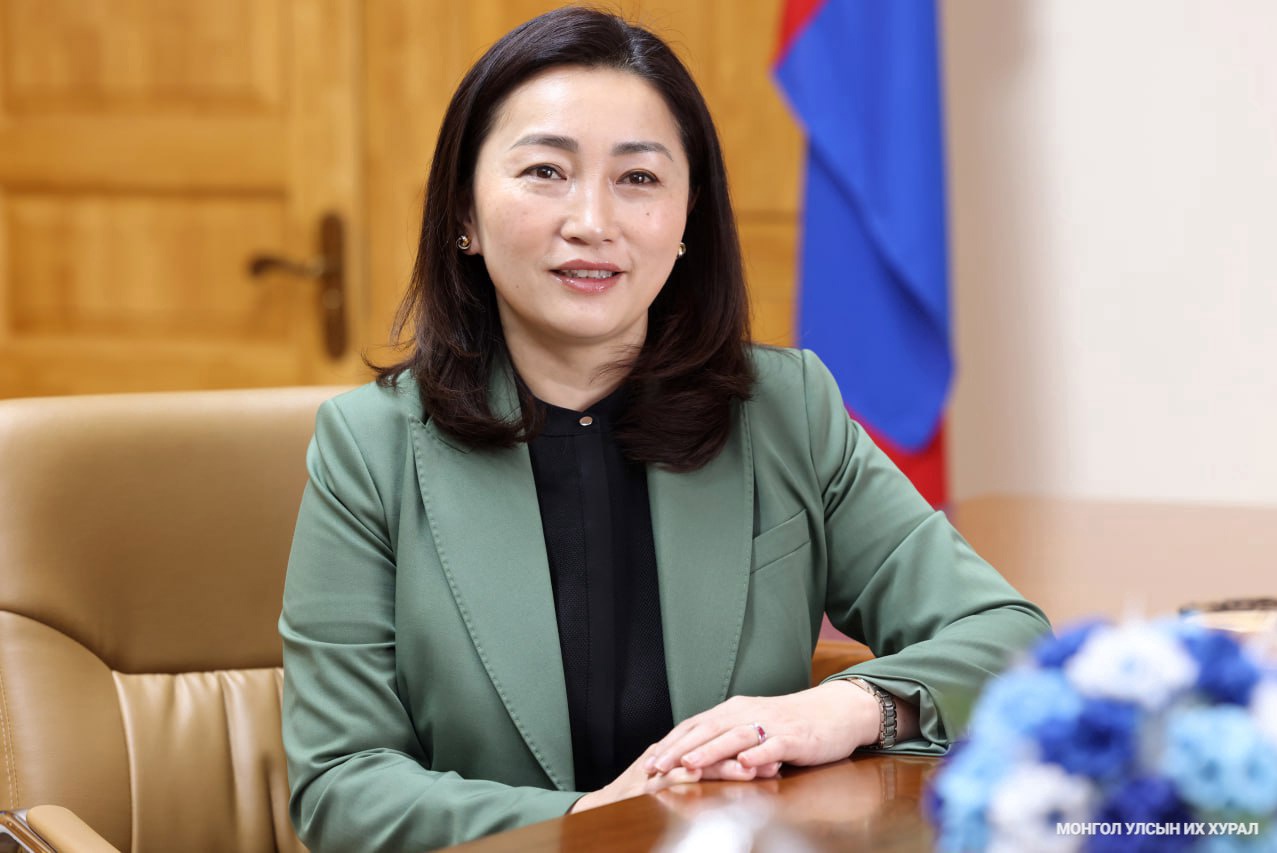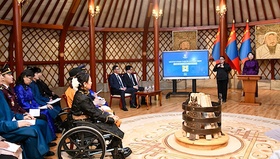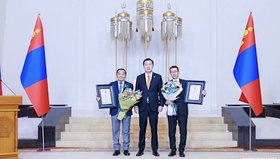Deputy Chairwoman of the State Great Hural (Parliament) Kh. Bulgantuya shared insights into key achievements and laws adopted during the recent autumn parliamentary session.
How would you evaluate the recent autumn session of the Parliament?
-The autumn session was productive and focused. The State Great Hural passed eight standalone laws, made amendments to 29 laws, ratified various international agreements and conventions, and adopted a total of 52 laws and 57 resolutions. Notably, the budget was discussed three times and, for the first time, a deficit-free budget was approved. Citizens were likely curious to see how the newly expanded parliament, composed of 126 MPs from multiple parties, would function. There might have been initial skepticism.
Aside from passing the budget, the Parliament reached consensus on several major infrastructure projects that had been stalled previously due to political disagreements. This signals an essential step forward in economic growth. The new Parliament, with its 126 members, has effectively demonstrated an ability to prioritize national development over political divides. Timing was also favorable, as Prime Minister L. Oyun-Erdene began his second term, building upon the groundwork laid by the previous government. This groundwork facilitated the rapid approval of these significant projects.
The Parliament has approved its four-year strategic plan, and you led the working group responsible for drafting it. How does this plan differ from the 2020-2024 strategic plan?
-Every institution needs a clear plan to address ongoing challenges and drive improvement. Parliament is no exception. After the amendments to he Constitution in 2019, the 2020-2024 parliamentary strategy focused heavily on parliamentary oversight and public engagement. Based on public feedback and sociological studies indicating increased public trust in Parliament, we developed and implemented the D-Parliament electronic platform, enabling broader civic participation.
Yet, the public also expressed concerns regarding overly bureaucratic laws, structures that expanded governmental authority, and regulations perceived as ineffective or restrictive to human rights. In response, our new strategic plan explicitly states that Parliament will neither consider nor approve laws that infringe on human rights or cause unnecessary conflicts. Task forces created by the orders of the Chairman and Standing Committees will supervise this rigorously.
Additionally, we established a new parliamentary oversight institution, creating a legal framework that ensures laws are not merely adopted but effectively monitored and evaluated. An important legislative draft, the Law on Legislation, spearheaded by MP D. Tsogtbaatar, Chair of the Standing Committee on Justice, has been submitted to Parliament. Currently, over 60 parliamentary task forces are reviewing existing laws to ensure they align with human rights principles and reflect modern standards.
Members of Parliament representing various sectors are actively overseeing laws within their fields. For instance, MP J. Galbadrakh leads the working group tasked with reviewing the implementation of the General Law on Education, addressing teacher shortages, improving teacher status, and enhancing public school management. Likewise, MP M. Mandkhai leads a group monitoring the effectiveness of government programs such as "New Cooperative" and "White Gold."
Parliament emphasizes creating human-centered legislation responsive to modern challenges. Could you elaborate?
-The 9th Parliament’s strategic plan and the "Three Pillars of Excellence" policy emphasize creating human-centered, comprehensive, and timely laws.
Many current laws, especially those related to banking, finance, and economics, date back to the 1990s, receiving only incremental updates.
Over 30 years old, these foundational principles no longer fully meet today’s needs. Thus, comprehensive updates are necessary to respond to contemporary challenges effectively. We aim to craft laws proactively, anticipating societal needs rather than reacting belatedly. Currently, many laws focus excessively on institutional structures, neglecting citizens' concerns and rights, leading to public frustration. Regulations frequently surpass the law itself, negatively impacting people's rights and freedoms. In the upcoming spring session, Parliament will focus on reviewing and approving legislation developed by various task forces aimed at establishing a transparent, comprehensible, comprehensive, and human-centered legal environment responsive to contemporary demands.

 Eng
Eng  Монгол
Монгол


